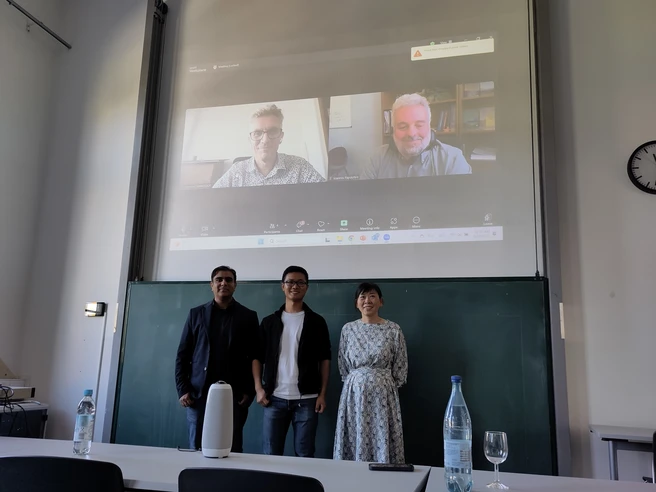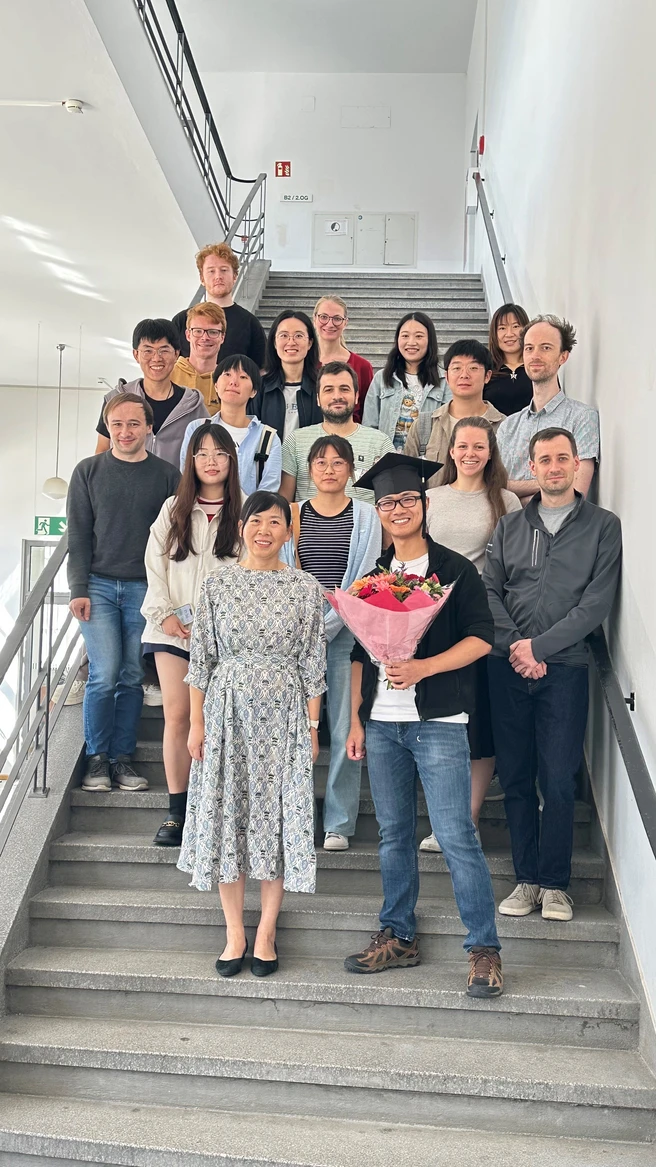On September 19, 2025, Yi Wang successfully defended his doctoral dissertation entitled:
“One to Two, Two to All: Towards Multimodal Self-supervised Learning for Earth Observation”
The defense took place under the chairmanship of Prof. Dr.-Ing. Muhammad Shahzad (TUM), with the examination committee consisting of:
- Prof. Dr.-Ing. habil. Xiaoxiang Zhu (TUM, PhD Supervisor)
- Prof. Dr. Jocelyn Chanussot (Grenoble INP, France)
- Prof. Dr. Ioannis Papoutsis (National Technical University of Athens, Greece)
About the Dissertation
Advances in deep neural networks have revolutionized Earth Observation (EO), enabling powerful tools for monitoring our planet. However, supervised approaches require massive amounts of manual annotation—an effort that is both costly and limited in scalability.
Yi Wang’s dissertation addresses this challenge by exploring Self-Supervised Learning (SSL) for EO data, focusing on the inherently multimodal nature of EO sensors. His research makes contributions on several fronts:
- Comprehensive Survey & Benchmarking – A systematic overview connecting EO with the broader machine learning community, including a benchmark study identifying key challenges and opportunities.
- Dataset Curation – Construction of a large-scale multimodal, multitemporal EO dataset with balanced geographical sampling and overlap filtering.
- Modality-Specific SSL – Novel pretraining methods based on masked image modeling and contrastive learning, tailored for multispectral and Synthetic Aperture Radar (SAR) imagery.
- Joint Multimodal SSL – Exploration of both input-level and latent-space fusion, including a redundancy reduction design to disentangle common and unique multimodal representations.
These contributions pave the way for scalable multimodal pretraining, setting the stage for future EO foundation models.
Congratulations 🎉
We warmly congratulate Dr. Yi Wang on this outstanding achievement and wish him continued success in advancing the frontiers of machine learning and Earth Observation research.

